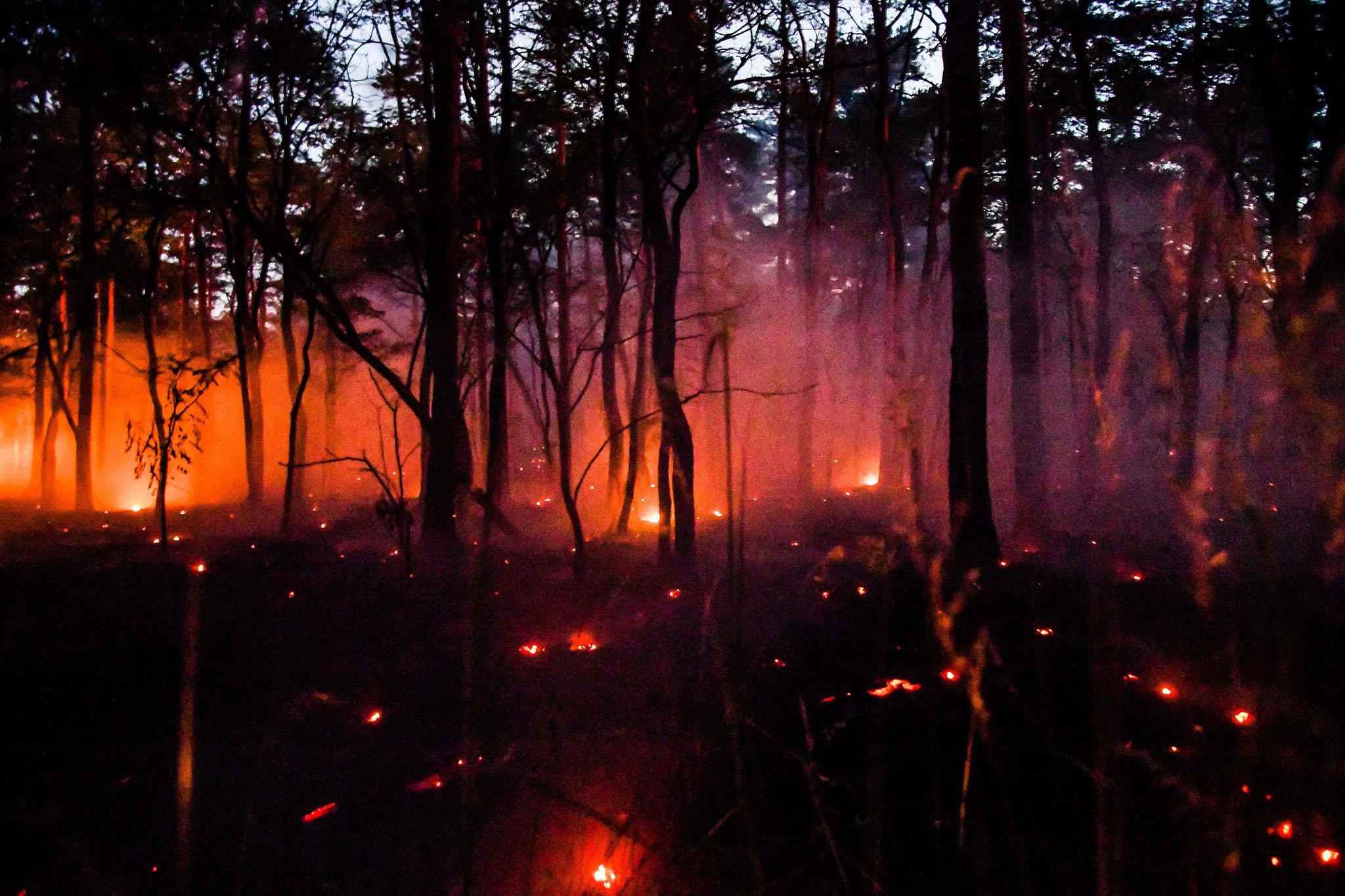Spain is so hot a heap of manure self-combusted, triggering a massive wildfire
Officials warn more 'significant' blazes could break out with temperatures set to reach 45C
Your support helps us to tell the story
From reproductive rights to climate change to Big Tech, The Independent is on the ground when the story is developing. Whether it's investigating the financials of Elon Musk's pro-Trump PAC or producing our latest documentary, 'The A Word', which shines a light on the American women fighting for reproductive rights, we know how important it is to parse out the facts from the messaging.
At such a critical moment in US history, we need reporters on the ground. Your donation allows us to keep sending journalists to speak to both sides of the story.
The Independent is trusted by Americans across the entire political spectrum. And unlike many other quality news outlets, we choose not to lock Americans out of our reporting and analysis with paywalls. We believe quality journalism should be available to everyone, paid for by those who can afford it.
Your support makes all the difference.A pile of manure that spontaneously combusted as temperatures soared to 44C is thought to have triggered a huge wildfire raging across north eastern Spain for a third day.
It comes as a historic heatwave hits Europe with Germany, Poland and Czech Republic recording their highest temperatures for June on Wednesday.
The wildfire in Catalonia is the most serious the region has seen in 20 years, according to the local government.
At least 10,000 hectares of forest have been destroyed in the Tarragona province, after the fire broke out on Wednesday when temperatures exceeded 40C.
Hundreds of firefighters are still battling the blaze alongside specialists from Spain’s military emergency unit as it continues for a third day.
Around 500 people were evacuated to a school gym and hundreds of sheep have died in the smoke and flames.
Officials fear that that the fire could spread across 20,000 hectares in total because of the fierce heat and high winds.
Miquel Buch, the regional interior minister, told Catalunya Ràdio that the fire was probably caused by "an accumulation of manure in a farm that generated enough heat to explode and generate sparks".
Microbes inside manure release heat as they break down organic material in the manure. If the air surrounding the manure is also hot, it can heat up to a temperature high enough to cause combustion.

In a tweet, Mr Buch wrote: "Let us be very aware that any irresponsibility can end up being a catastrophe. Maximum precaution."
David Borrell, the head of the Catalan Fire Department, told Catalunya Ràdio that the region’s hilly terrain made combating the fire especially difficult.
“The problem is not so much the resources available but rather the difficulty of the terrain and the weather conditions,” he said.
With temperatures expected to reach 45C in the region by the end of the week, officials warned more “significant” forest fires could break out.
The heat is also expected to rise elsewhere across Europe as a plume of hot air from the Sahara engulfs the continent.
In France, the national forecaster Meteo raised the hazardous weather warning to "red" for the Marseille and Montpellier areas in southeastern France. The agency has predicted temperatures of 42-45C in these regions on Friday.
National exams on Thursday and Friday have also been postponed after education minister Jean-Michel Blanquer deemed it would be too hot.
On beaches in southern France, three swimmers died in separate incidents thought to be the result of “thermic shock” after coming into contact with cool water.
In Italy, the health ministry said seven cities, including Florence, Rome and Turin, were already at the highest heat warning level on Thursday.
Scientists said heatwaves in Europe are becoming more frequent, linking the intense temperatures to climate change.
Europe's five hottest summers since 1500 have all been in the 21st century, according to climatology experts at the Potsdam Institute in Germany.
Stefan Rahmstorf said “monthly heat records all over the globe occur five times as often today as they would in a stable climate.”
Parts of the UK are also expected to experience hot temperatures over the weekend, with a high of 32C forecast in London on Saturday.
Additional reporting by agencies
Subscribe to Independent Premium to bookmark this article
Want to bookmark your favourite articles and stories to read or reference later? Start your Independent Premium subscription today.

Join our commenting forum
Join thought-provoking conversations, follow other Independent readers and see their replies
Comments